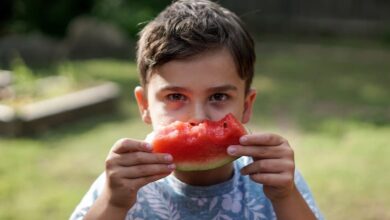Why is an Active Kid a Healthy Kid?
Why is an Active Kid a Healthy Kid?
Active play is enjoyable for kids. Their bones and muscles develop and get stronger as they run, climb, leap, and cycle. Sports and exercise are essential for a kid’s physical, mental, and social development. Unfortunately, kids don’t get the recommended amount of exercise because of several barriers. Children are more likely to fall into the lure of screens and video games than outdoor play. Urban areas with fewer green spaces also have fewer places for kids to play outside.

How Does Lack Exercise Affect Kids?
Lack of exercise affects kids in many ways, including:
- Raise the risk of cardiovascular illnesses and childhood obesity
- Reduces immunity
- Increases anxiety levels
- Raises the possibility of type 2 diabetes
- This leads to mood changes
- This leads to decreased bone density and muscle tone
- Depletes a kid’s energy and causes laziness and sluggishness
- Increases the chance of lung conditions
Why is Keeping Kids Active Important?
Anyone who has observed kids on a playground would acknowledge that most are naturally athletic and enjoy moving around. Additionally, climbs up slides and swings from monkey bars can inspire children to lead active lives for the rest of their lives.
Getting enough daily activities for kids might become more challenging as they age. This could result from increased academic pressure, some kids’ perceptions that they aren’t excellent at sports, a lack of positive role models, and busy working families.
What are the Benefits of Keeping Kids Active?
Kids’ social, mental, and physical development depends heavily on their participation in regular physical activity. Getting exercise can benefit kids by:
- Boost cardiovascular health
- Develop bone and muscle strength
- Gain confidence, movement control, and coordination
- Keep your body at a healthy weight
- Decreased risk of developing type 2 diabetes
- Smaller chance of developing chronic illnesses in old age
- Lessen melancholy, anxiety, and emotional distress while increasing self-esteem
- Gain more learning and attention span, perform better in school, and have more opportunities for expression, learning, and fun
- Develop social qualities like teamwork, cooperation, fair play, respect for others, problem-solving, and athletics.
- A Better sleep
How Much Physical Activity Should a Kid Get Ideally?
Children above six should physically engage for at least an hour each day. Even 15 minutes of exercise can be good every hour or so.
What Motivates Kids?
There are many benefits to regular physical activity, but how can you get youngsters interested in it? There are three keys:
- Select appropriate activities for the kid’s age. If you don’t, the kid can get bored or frustrated.
- Provide ample opportunities for kids to be active. Kids need their parents to make it simple for them to be active by giving them the necessary tools and enrolling them in sports or academic programs.
- Maintain the fun element. Children won’t engage in activities they find boring.
Kids desire to engage in an activity more often when they love it. Whether swimming or riding a tricycle, practicing a skill enhances one’s abilities and gives one a sense of accomplishment, especially when the effort is recognized and appreciated. Kids frequently desire to continue the activity and even attempt others because of these positive sentiments.

How to Include Exercise in Your Kid’s Daily Schedule?
Kids, unlike adults, do not require structured exercise routines; instead, they get all their exercises from running, leaping, and climbing. Therefore, kids benefit from any physical activity they enjoy, making their little hearts race.
1. Healthy parents raise healthy children. Therefore, the likelihood is that your children will also be active, fit, and interested in play and sports if you are.
2. Schedule frequent family physical activity. Three times every week, go for a family walk after dinner.
3. Encourage your kid to join a sport, any sport they like, and let them play with other kids. Put pleasure first, not skill. Your kid will be more likely to engage in physical activity if he sees it as fun.
4. When a baby is awake and alert, they must spend time on their stomachs. They must be placed on their tummies to develop the muscles necessary to lift their heads, move their arms and legs, learn to roll and prepare to crawl and explore.
5. Kids look up to their parents. Show them that you enjoy moving as well. Take walks in areas where they can play ball games and tag. Join them in a dance. Show them that you prefer to use the stairs over the elevator.
6. Active play is any free-form, child-directed movement that kids engage in for enjoyment, such as tag, skipping, or ball activities on the playground. It also has positive effects on a child’s social and emotional health and benefits their developing bodies.
7. Active transportation is any means by which kids get from point A to point B on their own. It covers activities like biking, in-line skating, skateboarding, and walking and running.
8. Try to discover places where they can run, jump, climb, dance, swim, and bike to lifetime health instead of spending too much time in front of screens.




